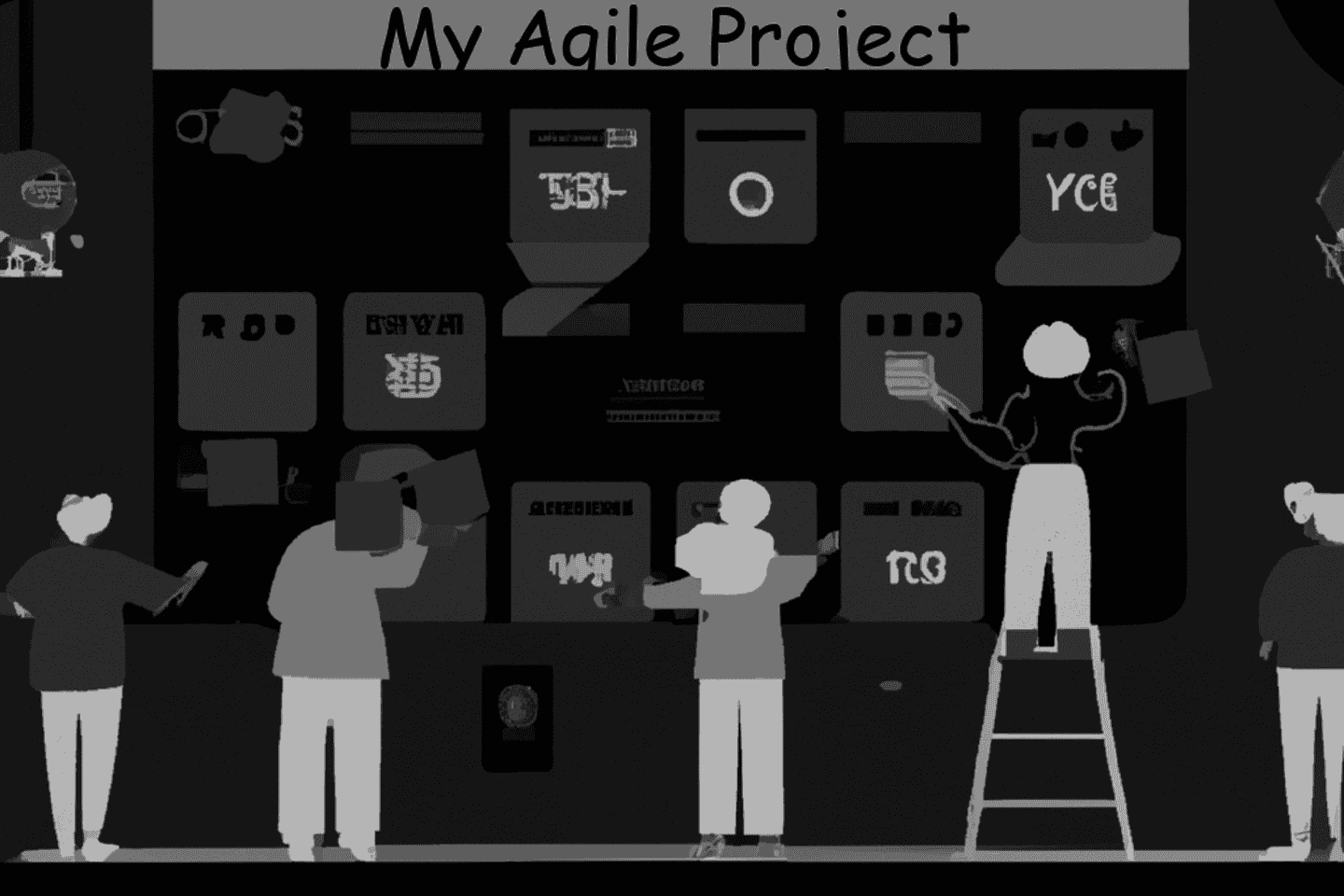Generative AI to drive the Next Generation of Successful Businesses
Generative AI will change the profile and profitability of Data Intensive or Data Driven Businesses.
In this latest article on Generative Artificial Intelligence (Generative AI) and its impact on our world, we explore the wider opportunities (other than chat bots, and AI led conversations ), and how this technology might revolutionise delivery across industries, enterprises and data driven services. As part of our series of exec briefing notes and best practice guidance, we will explore how Generative AI could change the profile ( and profitability ) of a number of sectors and industries, and how it will rapidly change the core processes at the heart of many service organisations.
Introduction
Generative AI technology is a form of machine learning that focuses on generating new data from existing data sources. Generative AI is not an expert system. It doesn't know facts, but it does have the ability to interpret and analyse large arrays of information to summarise and present in a digestible form. ( Our previous article on ChatGPT covered this problem ). The other key boundary we need to consider is that these new technologies do not create ‘new ideas’. They are able to glue together threads, and provide new analysis to help develop theories, and derive new information from existing, but not create new concepts.
Generative AI’s ability to consume and analyse huge quantities of information ( stored as unstructured data or natural language ) provides the ability to develop new ways of working by leveraging its ability to understand, derive, understand and summaries those data sets..
Generative AI has the potential to impact not only the delivery of services, but their design and development as well. It demonstrates a significant change in technology capability, as it provides a new way for businesses to generate services and information automatically, (further) support decision making, with a far reduced need for human specialists, analysts, developers and management overhead.
This change in capability could also greatly impact the speed and quality of development, with the ability to significantly reduce time needed to design, build, test and deploy new higher quality services. This leap in capability, with the ability to quickly develop insight on customer activity, capitalise on new opportunities, and accurately predict behaviour, will lead to improved customer service and satisfaction. We should see more tailored services, with better targeted of marketing, and more efficient customer segmentation.
With the ability for these AI systems to synthesise data from multiple sources and generate new insight, Generative AI can help significantly to make better informed decisions ( both in quality and speed). This ability to automate key processes, combined with the ability to discover new trends, will help “AI enabled” businesses to stay ahead of the competition, be more competitive and develop growth in new areas.
Ultimately, Generative AI will have a major impact on the way successful businesses operate, allowing them to optimise processes, reduce costs, and create new revenue streams.
Successful and Profitable AI Businesses
The impact on the profitability of businesses is likely to be significant. Studies have shown that companies who use this technology can reduce costs and improve employee productivity. Generative AI can drive the identification of new customer segments or markets, create personalised products and services, streamline operations, and increase customer reach.
Companies that rely heavily on data such as financial services, retail, healthcare, transportation, and logistics services are likely to benefit significantly from using Generative AI systems. These types of businesses will have the opportunity to leverage their data, make better decisions faster, target their investment and improve their services.
To give some examples of where we are likely to see this technology making a difference, include:
- Media companies will be able to create highly personalised digital content that is tailored to each individual user, delivering content that is more relevant and engaging, leading to higher user engagement. It will enable them to better understand their users, allowing them to more effectively target their content and ads, resulting in improved ROI.
- In the Legal profession, Generative AI technology has the potential to drastically increase the profitability and profile of legal practices. This technology can be used to automate the tedious, repetitive tasks that consume much of an analyst’s time and energy; analyse evidence, identify key issues, summarise points of contention. The transaction processes of generating legal documents such as contracts, briefs, and pleadings, as well as research relevant case law can all be greatly enhanced by the application of tailored Generative AI technology..
- For Professional services, Generative AI can be used to track time and billable hours, freeing up administration time to focus on more important, higher-value tasks. Professional organisations will be able to become more efficient and profitable, leading to advantages in quality and performance ( a secondary effect being improvement in reputation for being on the cutting edge of technology and innovation ). Those that don't adopt these opportunities may struggle to remain competitive and hence popular.
- In Education and Training, Generative AI can revolutionise the process of creating tailored content, enabling businesses to focus their resources on marketing, sales and customer service. Tailored content, that is built to the specific needs of their customers, can ensure pupil interaction is more engaging and effective, leading to higher satisfaction and loyalty. By increasing profitability and customer satisfaction, Generative AI technology can help educational and training businesses increase their profile and reach new customers.
- In the Finance sector, AI and Neural Technology have been exploited for many years. By analysing data, and identifying patterns, finance businesses have been using AI to look for trends to support predictions, often in order to support advisory or trading activity. Generative AI adds a new dimension, by being able to consolidate large volumes of unstructured information, with financial market data, to look for insight and cause/effect. Interpreting social media, financial news, local reports, as well as market information can provide the information required to deliver better decision making.
- Law Enforcement: Generative AI can provide a useful tool for analysis and detection, being able to search and interpret information from across a wide range of data sources (including financial and unstructured data). By leveraging AI, it can detect anomalies that may indicate fraudulent activity or other suspicious activities that need further investigation. The automated component has the potential to highlight suspicious transactions more quickly, with appropriate action taken faster to reduce impact. Recently, police forces in the UK have started incorporating Generative AI’s technology into their investigations, enabling them to speed up investigations and get more accurate results than previously possible.
- Within the Health and Medical industries, Generative AI can be used to assist in processing large volumes of health and medical data, to quickly identify patterns that would otherwise be impossible for human analysts to detect. For example, to detect correlations between different types of medical conditions or treatments which could lead to new discoveries or more effective treatments. Its ability to rapidly summarise large sources of unstructured information, can help healthcare professionals better understand patient histories, or to automatically detect anomalies in data to indicate areas that require further investigation. Within Research and support diagnosis, Generative AI can provide detailed insights into patient histories, correlating different types of medical conditions or treatments, detecting anomalies in the data which could indicate potential issues or diseases that require further investigation, and providing personalised insights into patient care through its predictive analytics capabilities.
- In Project and Change delivery, Generative AI has been shown how it can analyse, summarise and present project progress information, by inspecting and listening to project email traffic.
- Finally, in Safety Critical Systems, Generative AI has the ability to scale up quality and assurance by enabling improved a) Risk Analysis through simulation, b) Predictive Maintenance through trend spotting and correlation behaviours, c) Automating Decision Making using Machine Learning to help reduce complexities and prioritise information, and d) Automate testing through learning from real world scenarios and adapting to failure analysis etc.
The Bright Future
Generative AI is a promising new technology that has the potential to revolutionise our daily lives and the way we interact with one another. Based on machine learning algorithms that are able to generate content, such as images, videos, texts, or audio, without any human input, it has a wide range of applications, from medical diagnosis and autonomous vehicles to entertainment and social media.
Generative AI is already being used in many industries.
- In the medical field to provide automated diagnosis of diseases and conditions,
- to help detect cancerous tumours in medical scans or identify objects in X-rays.
- to generate realistic video game characters, music, and art.
- and to create original content for social media platforms.
The Implications and Risks from deploying Generative AI
The potential implications of Generative AI are far-reaching, with greater efficiency in many aspects of our lives, from healthcare to travel planning. It will have an impact on how we interact with each other; Generative AI’s ability to generate conversations with people or provide meaningful advice when needed is powerful, with the additional benefit of being able to better understand context and our environment. by providing data-driven insights into complex problems.
It will undoubtedly have profound implications on society and our day-to-day lives; however, there are some ethical considerations that should be taken into account when using this technology. Examples have already arisen where there is potential bias in outputs if not properly trained, monitored and regulated (underlying bias in data sets can be amplified by the use of these solutions). Additionally, questions have been raised about who owns the rights to generated content; should it belong to the algorithm’s creator or should it belong to whoever uses it?
Conclusion
Generative AI has immense potential for transforming business, organisation’s delivery makeup and our wider society in general. Ethical considerations will be key, as any business looks to adopt and use these very powerful capabilities, in order to ensure its responsible, legal and legitimate use.
Consequently, it will have a significant impact on the structure, operating model and underlying profitability of those businesses choosing to embrace and utilise its power. Providing Agility as well, Generative AI can support predictive responses and simplified/more accurate decision making. Businesses across most industries that rely heavily on data are likely to benefit the most from using this technology, enabling them to gain reward from leveraging and capitalising on the capabilities, to not only transform but also revolutionise their services and cost base.































